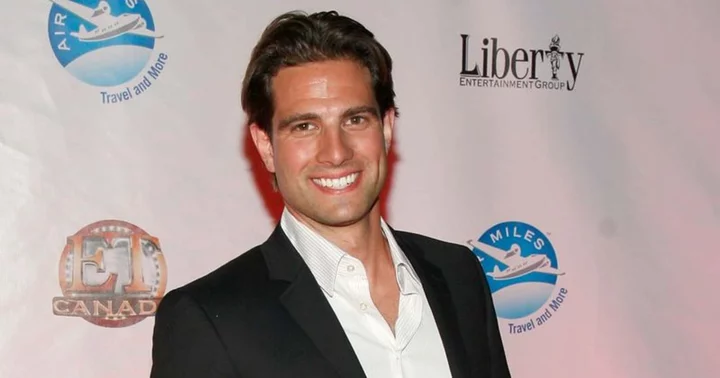TORONTO (AP) — Fifty pages into Percival Everett's “Erasure" Cord Jefferson knew he wanted to adapt it into a movie script. Halfway through, he began to see Jeffrey Wright playing the book's academic protagonist, Thelonious “Monk” Ellison. By the time he was finished, he knew he wanted to direct it, too.
As quick as that, Cord Jefferson — the 41-year-old TV writer of “Succession,” “Master of None” and “Watchmen” — began working toward his directing debut, “American Fiction.” And just as speedily, following its premiere at the Toronto International Film Festival, “American Fiction” became a breakout hit of the festival, launching Jefferson as a major new voice in movies.
In the film, Monk (Wright), is a frustrated author who's agent (John Ortiz) tells him his books — the latest of which is a reworking of Aeschylus’ “The Persians” — aren't “Black enough.” “I'm Black," he responds, “and this is my book.”
Monk, played with acerbic perfection and delightful disgust by Wright, writes as a drunken lark, a book intended to parody the kinds that sell and cater to white audiences' view of Black people. Under the pseudonym Stagg R. Leigh, he dashes off a manuscript of thug life trauma porn titled “My Pafology” that — surprise — immediately sells and gets bought for movie rights.
“All the conversations that the book was having were conversations I was having with my friends and had been having for decades,” Jefferson, who was an editor for Gawker before transitioning into TV, said in an interview.
“I worked as a journalist for eight or nine years before working in television," he added. "I was having the exact same conversations with Black colleagues in both professions: Why are we always writing about misery and trauma and violence and pain inflicted on Blacks? Why is this what people expect from us? Why is this the only thing we have to offer to culture?”
“American Fiction,” which MGM will release Nov. 3 in theaters, is a funny, jazzy riff on Black representation in books and films that delights in mocking both stereotypes and identity politics while pleading for something more nuanced — something like “American Fiction.”
“One of the main themes is the way we see ourselves as unique, specific individuals, and the way the world tries to put us into little boxes and sand away all the things that make us unique and special,” Jefferson said.
At the TIFF premiere, Jefferson took a moment to note that he loves movies like “12 Years a Slave” and “New Jack City.” But Jefferson, lamenting “a poverty of imagination when it comes to what Black life looks like,” said other films on the spectrum should exist, too.
“I feel like Jewish people get ‘Schindler’s List’ and ‘Annie Hall,'” said Jefferson.
While Woody Allen's film may be a reference point to “American Fiction,” direct comparisons are harder to come by for such a breezy but biting commentary. Tracee Ellis Ross, Sterling K. Brown and Erika Alexander co-star, along with Issa Rae, who plays the author of a book titled “We’s Lives in Da Ghetto.”
“One of the most exciting things has been in test screening when we ask people, ‘What does this film remind you of?’" says Jefferson. “There’s been several people who can’t name a comedy or a film it reminds them of.”
Jefferson, who grew up in Tucson, Arizona, wrote on some of the issues his film touched on in a 2014 piece titled “The Racism Beat.” In it, he described the importance of writers from marginalized groups bringing individual perspective to journalism, but the difficulty of not being defined by it. Jefferson, who also wrote essays about donating a kidney to his father and being biracial, became a writer for “The Nightly Show with Larry Wilmore” before transitioning into drama and comedy series. He won an Emmy for penning the 1921 Tulsa Race Massacre episode of “Watchman” episode with Damon Lindelof.
Directing a film, Jefferson says, wasn't necessarily a lifelong ambition. He hadn't gone to film school, so he didn't think it was in the cards until he spoke with a friend directing an episode of “Master of None" who had studied business, not film.
“I realized all you need to do is have a vision and be able to articulate it other people,” says Jefferson.
That “American Fiction” is hard to categorize, he says, might mean he's on the right track.
“This being my first movie, I’m eager to find what my voice is,” Jefferson says. "I don’t really know what my voice is yet, but I’m trying to achieve that. Having people say that the movie feels unique makes me think maybe I’m on to finding my voice somewhere along the path."
___
Follow AP Film Writer Jake Coyle on Twitter at: http://twitter.com/jakecoyleAP









